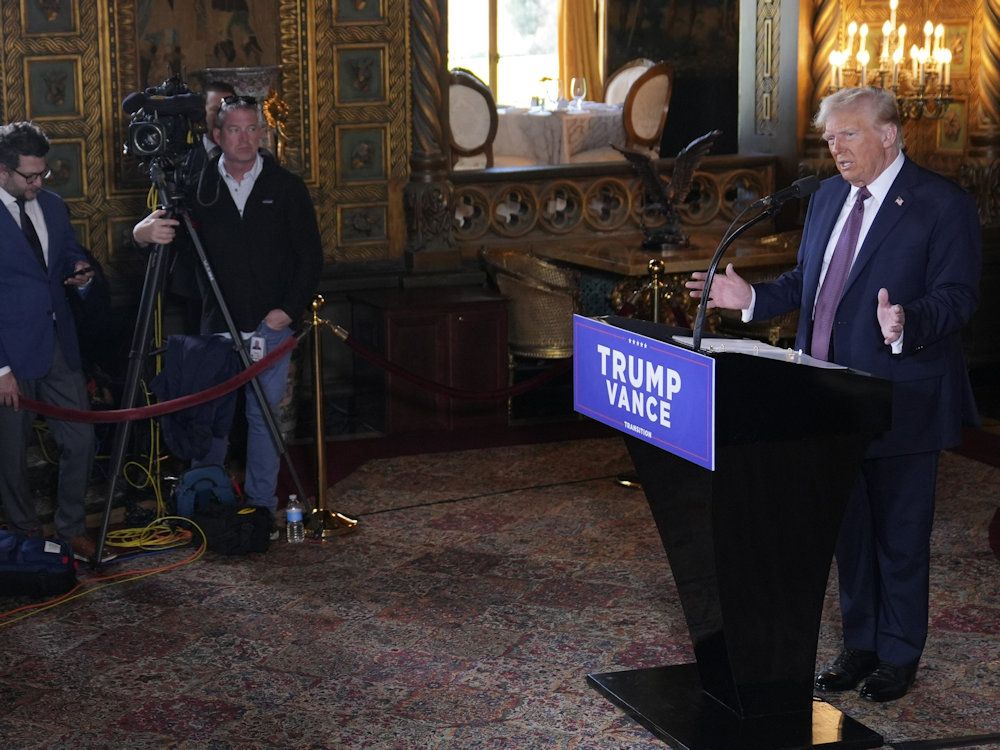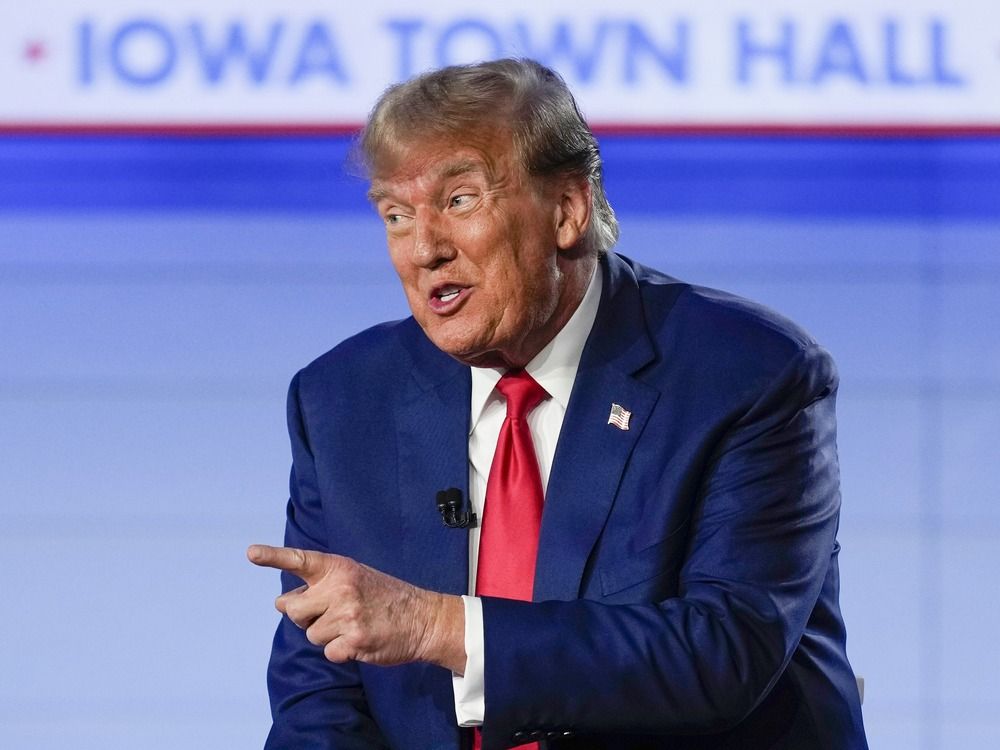'If we would not submit to an emperor, we should not submit to an autocrat of trade'
Published Dec 27, 2024 • Last updated 0 minutes ago • 4 minute read

Jonathan Kanter, who retired as the U.S. Department of Justice’s antitrust head on Dec. 20, reinvigorated competition law in his three years as assistant attorney-general of the United States. In his farewell address a few days earlier, he warned Americans about the “powerful forces suppressing their economic freedom.” This is adapted from that speech.
Advertisement 2
THIS CONTENT IS RESERVED FOR SUBSCRIBERS
Enjoy the latest local, national and international news.
- Exclusive articles by Conrad Black, Barbara Kay and others. Plus, special edition NP Platformed and First Reading newsletters and virtual events.
- Unlimited online access to National Post and 15 news sites with one account.
- National Post ePaper, an electronic replica of the print edition to view on any device, share and comment on.
- Daily puzzles including the New York Times Crossword.
- Support local journalism.
SUBSCRIBE FOR MORE ARTICLES
Enjoy the latest local, national and international news.
- Exclusive articles by Conrad Black, Barbara Kay and others. Plus, special edition NP Platformed and First Reading newsletters and virtual events.
- Unlimited online access to National Post and 15 news sites with one account.
- National Post ePaper, an electronic replica of the print edition to view on any device, share and comment on.
- Daily puzzles including the New York Times Crossword.
- Support local journalism.
REGISTER / SIGN IN TO UNLOCK MORE ARTICLES
Create an account or sign in to continue with your reading experience.
- Access articles from across Canada with one account.
- Share your thoughts and join the conversation in the comments.
- Enjoy additional articles per month.
- Get email updates from your favourite authors.
THIS ARTICLE IS FREE TO READ REGISTER TO UNLOCK.
Create an account or sign in to continue with your reading experience.
- Access articles from across Canada with one account
- Share your thoughts and join the conversation in the comments
- Enjoy additional articles per month
- Get email updates from your favourite authors
Article content
When I took office in 2021, questions about monopoly power were no longer just a technocratic concern relegated to the narrow halls of white-shoe law firms and elite academic institutions.
Our nation was experiencing a remarkable moment unlike any I had seen in my lifetime.
Americans across the country had become acutely aware of the powerful forces that were suppressing their economic freedom. Increasingly, Americans were losing faith in the American dream due to unaccountable corporate giants imposing a system of private regulation and taxation in nearly every facet of their lives.
Higher prices were fueling greater margins in the wake of the global pandemic as people struggled to make ends meet. Price increases on nearly every household staple felt like a tax.
And private regulations were stifling the necessities of life, causing economic opportunity and meritocracy to evaporate. Let me give you some examples of private regulation:
Manufacturers imposing rules that prevented local farmers from fixing their tractors. Doctors and nurses being forced to seek permission from intermediaries using spreadsheets and algorithms to dispense treatments and medicine, often in ways that compromise the care of their patients. The town square moving to online platforms where powerful monopolists controlled which messages to promote. Small tech startups encountering thickets of API restrictions, payment system limitations and platform rules that stifle innovation, restrict growth and force prices to go up.
By signing up you consent to receive the above newsletter from Postmedia Network Inc.
Article content
Advertisement 3
Article content
Plutocracy is its own kind of dictatorship. When companies larger, wealthier and more powerful than most world governments threaten individual liberty with coercive private taxation and regulation, it threatens our way of life.
Senator Sherman taught us that in 1890. Here is what he told the Congress when urging them to pass his antimonopoly legislation.
“Monopolies,” he declared, are “inconsistent with our form of government…If we will not endure a king as a political power, we should not endure a king over the production, transportation and sale of any of the necessaries of life.”
“If we would not submit to an emperor,” he said, “we should not submit to an autocrat of trade.”
That’s why the Senate passed the Sherman Act by a vote of 51–1. And it is why our work here today, 134 years later, remains so important.
But for too long, we had forgotten the “why” when it comes to antitrust enforcement. We had forgotten that antitrust enforcement preserves the fabric of our communities and the foundational freedoms that animate the American dream.
For generations, the Sherman Act functioned as the Magna Carta of free enterprise and economic liberty.
Advertisement 4
Article content
But in recent years, we lost sight of the “why” due to a deliberate and decades-long effort to dismantle the intellectual, legal, and operational infrastructure of antitrust enforcement. From the Powell Memorandum written in 1971 to the Chicago School ideologues who substituted their judgment for that of Congress, to the network of academics who radicalized institutions under the guise of ‘administrability’ and error costs, a systematic effort to defang antitrust took hold.
And it stuck.
As a result, we have been asked to tolerate private taxation and regulation in return for the remote promise that the benefits to powerful corporations would trickle down to the middle class. People intentionally underenforced the antitrust laws based on a theory that monopoly power would always fix itself by evaporating in the blink of an eye.
But that promise of trickle-down corporate profits never materialized. How could it? The theory that we should intentionally under-enforce the law, because markets always self-correct, was proven wrong and runs contrary to our lived experiences and common sense.
Advertisement 5
Article content
Instead, corporate concentration ushered in an era of massive wealth inequality and a declining middle class. We have seen the erosion of the promise that future generations could build and sustain families on their own terms in thriving communities, be they rural, urban or anything in between. Exploitation of market power had become more threatening to our democratic institutions than ever before and at a level we had not experienced since the Gilded Age.
We are seeing a pervasive breakdown in the distinction between expertise and advocacy in competition policy. All over the world, money from powerful actors is finding its way into the academic and expert communities. This insidious influence has contributed to the decline of our intellectual infrastructure.
We need an open and candid conversation on how to distinguish between expertise and advocacy and build a consensus around how to address the problem of paid influencers posing as neutral observers.
National Post
Article content
.png)
 1 week ago
9
1 week ago
9


































 Bengali (BD) ·
Bengali (BD) ·  English (US) ·
English (US) ·